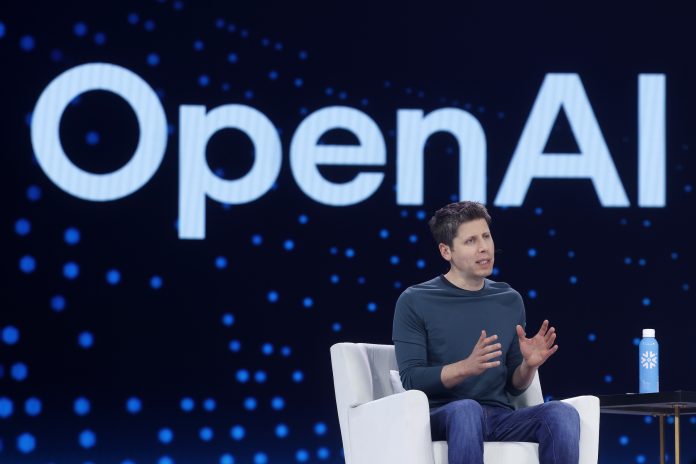Within the earliest days of Donald Trump’s second time period, there have been thrilling indicators that the administration was going to chart what we would name a “human-first” course on expertise. Voters who have been offended over how smartphones, social media, app shops, and EdTech had metastasized into one thing resembling a conspiracy towards youngsters, and who have been anxious that automation would possibly take their jobs, helped the president retake the White Home.
However hopes for a human-first tech coverage are already dimming. In its all-consuming efforts to beat China within the A.I. race, the Republican Occasion has fallen into its outdated libertarian habits of deferring to Large Tech’s pursuits, failing to guard youngsters and households from predatory makes use of of rising expertise, and deregulating the trade in order that it may function with none concern for client welfare.
It is not too late, although. Within the administration’s earliest days, the president sided with longshoremen towards efforts to make union members redundant through automation. Additionally, in his January 25, 2025 government order, the president dedicated to A.I. coverage that pursues “human flourishing.” Vice President JD Vance declared at February’s A.I. Motion Summit in Paris that the administration would “battle for insurance policies that make sure that AI” will result in “larger wages, higher advantages, and safer and extra affluent communities.” That is the street that the majority People need the administration to take.
However since then, the Republican Occasion has taken one enormous step backward. Final month the Home of Representatives accepted an modification to the “Large Lovely Invoice” that, if ratified by the Senate, would protect A.I. firms from state regulation and legal responsibility for ten complete years.
Such a transfer reveals astounding disregard for the way ungoverned applied sciences can undermine human flourishing—and it could unbridle Large Tech’s energy. The moratorium would void a regulation in Utah, for example, that prohibits psychological well being chatbots from focusing on customers with promoting, a coverage that removes firms’ incentives to use a struggling viewers. It could additionally block a proposed regulation in Texas that might require a “human operator,” i.e., a human driver, to accompany an autonomous long-haul truck because it transports its freight. And it could block a number of legal guidelines which were launched across the nation, together with in blue states like California and New York, that might require so-called “A.I. companions”—an Orwellian little bit of Large Tech branding—to make clear that they aren’t human beings.
Justin Sullivan/Getty Photographs
Republicans should be taught from Congress’ previous errors, equivalent to when, in 1996, it handed the ignominious Part 230 of the Communications Decency Act. Part 230 was touted as obligatory to protect the modern potential of the nascent on-line service trade from dying by regulation. However, by granting sweeping immunity for any content material posted by third events, platforms have been disincentivized from making good-faith efforts to guard youngsters. Part 230 dug a authorized moat round Large Tech from behind which the trade waged struggle on America’s youngsters.
The ten-year moratorium on A.I. regulation portends an identical legacy. It signifies that Congress, particularly Republican management, has did not reckon with how immunizing technological energy from legal responsibility threatens human flourishing.
To its credit score, by together with human flourishing in its A.I. coverage framework, the administration acknowledges the potential for selling A.I. innovation with out sacrificing different human items. Human flourishing as an specific coverage goal underscores that “acceleration,” because the techno-libertarian Proper calls it, is an over-simplified paradigm, and that tech coverage must pursue a broader suite of values, particularly the great of the human particular person and the household.
As we’ve got argued elsewhere, the achievement of human flourishing within the age of A.I. (as in all ages) will depend on deliberate coverage selections. Technological innovation, irrespective of how useful to financial prosperity or nationwide safety, ought to by no means come on the expense of the household or the human particular person. And there are methods to stability these pursuits. We’ve referred to as upon the Trump administration, for example, to determine a Working Group on Expertise and the Household, that might immediately help within the formation of coverage to information expertise towards household empowerment, and away from laws—just like the moratorium—that might put households within the crosshairs.
In February 2019, the primary Trump administration launched an government order that dedicated the federal authorities to securing “public belief” and “public confidence” in its A.I. coverage. It acknowledged that defending “American values” was a essential goal, even because it labored to advance “American management in AI.” That’s what an administration dedicated to human flourishing seems like; and it’s what the second Trump administration appeared like at its begin. A ten-year moratorium on state regulation, against this, is only a retread of the drained libertarian playbook that trades American values and public belief for technological energy and monetary acquire.
Fortuitously, a groundswell of opposition amongst Republicans senators has emerged, equivalent to Josh Hawley (Mo.), Marsha Blackburn (Tenn.), Ron Johnson (Wisc.), and Rick Scott (Fla.), who publicly oppose the moratorium. Consultant Marjorie Taylor Inexperienced (R-Ga.) has carried out likewise, and extra could be a part of them.
So, the die is just not but forged. The phrase is just not but last. The long run continues to be forward. The Trump administration can nonetheless make a human-first A.I. coverage. However the time for selecting is now.
Michael Toscano is director of the Household First Expertise Initiative on the Institute for Household Research. Jared Hayden is a coverage analyst for the Household First Tech Initiative on the Institute for Household Research.
The views expressed on this article are the writers’ personal.


